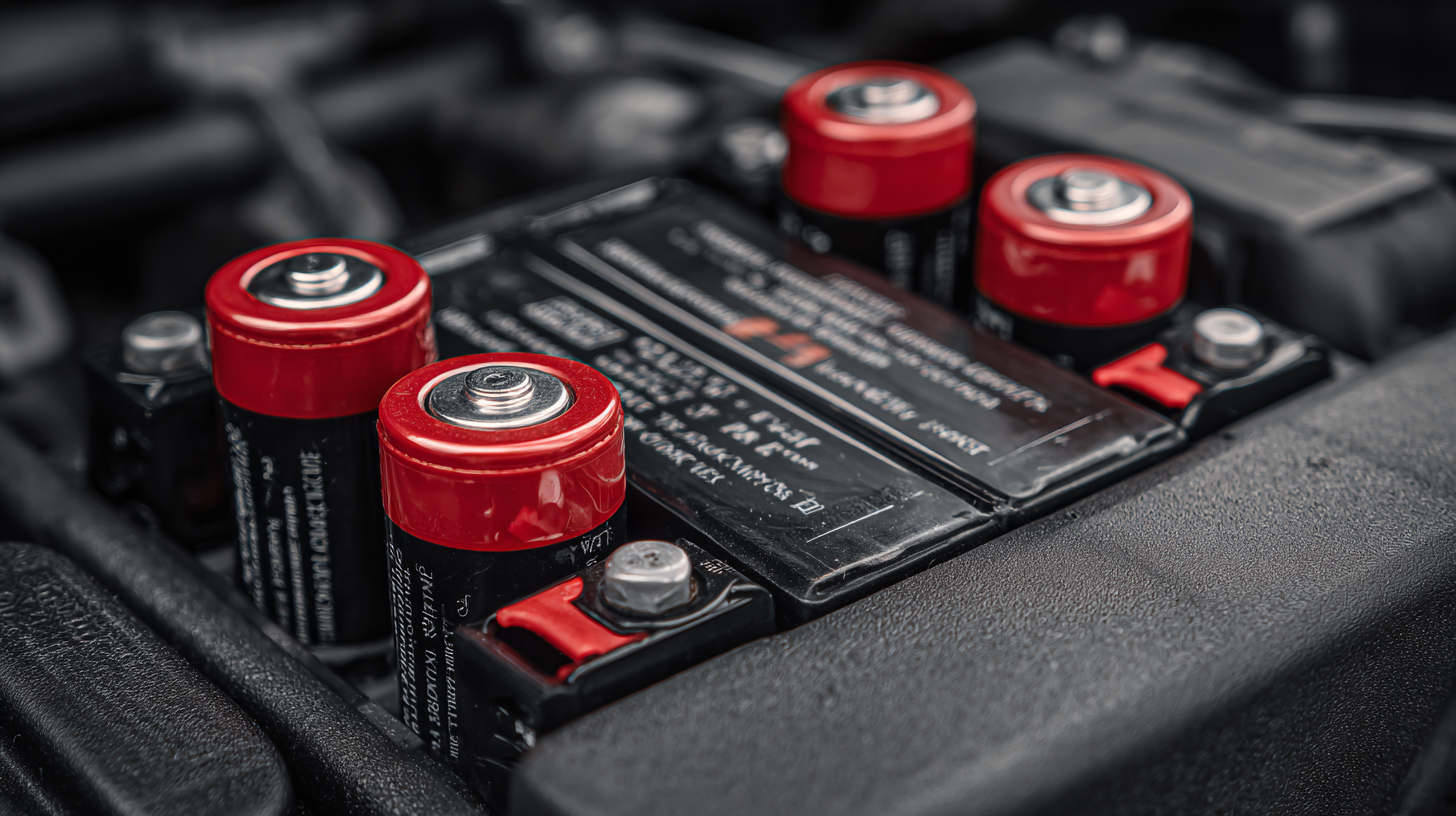How to Extend the Lifespan of Your Car Batteries: Essential Tips and Tricks
Car batteries are crucial components of modern vehicles, powering not only the ignition but also the multitude of electronic systems that enhance driving comfort and safety. According to a report by the Battery Council International, approximately 268 million car batteries are sold in the U.S. each year, underscoring the critical nature of their maintenance and longevity. However, many drivers are unaware that the average lifespan of a car battery is typically around three to five years, depending on various factors such as usage and climate conditions. Extending the lifespan of your car batteries can save you money and reduce environmental waste. Implementing essential tips and tricks can significantly improve their durability and performance, ensuring reliable operation and peace of mind on the road. In this article, we will explore effective strategies to help maximize the life of your car batteries, enabling you to make informed choices and keep your vehicle running smoothly.

Understanding the Basics: How Car Batteries Function and Their Lifespan
Understanding the basics of car batteries is essential for extending their lifespan. Car batteries typically have a life expectancy of about 2 to 5 years or can sustain up to 40,000 to 60,000 kilometers. Factors such as temperature extremes and repeated charge cycles significantly influence battery performance. Recent advancements in battery technologies, particularly lithium-ion batteries, have dramatically improved energy density, charging power, and lifespan. For instance, the electric vehicle battery market, projected to reach $1,876,762 million by 2032, indicates a serious demand for durable battery solutions, as current electric vehicle batteries deliver high performance for only 6 to 8 years.
Tips for extending your car battery's lifespan include:
1. Regularly check and maintain the battery's charge. Avoid letting it discharge completely, and ensure it stays charged, especially during extreme temperatures.
2. Utilize advanced battery management systems (BMS) to prevent overcharging and overheating, crucial for prolonging battery life. The BMS market is expected to exceed $16 billion by 2025, highlighting its growing importance.
3. Consider innovative refurbishment techniques, such as the recent discovery from research teams that allow damaged lithium batteries to be “rejuvenated” without replacement. Such breakthroughs could help in maximizing the lifespan of existing batteries.
By adopting these practices, you can significantly enhance the longevity and performance of your car batteries.
Common Factors That Affect Car Battery Longevity and Performance
Extending the lifespan of car batteries is essential for maintaining vehicle performance and reducing long-term costs. Several factors can significantly affect battery longevity and efficacy. The heat produced during operation, excessive discharging, and improper charging are key contributors to battery deterioration. As electric vehicle batteries become increasingly important in the automotive industry, managing these factors is critical for maximizing their lifespan.
Tips for prolonging battery life include ensuring regular maintenance checks to identify any potential issues early on. Keeping the battery clean and well-insulated can prevent damage from temperature fluctuations. Additionally, avoid leaving the battery in a fully discharged state for extended periods, as this can severely impact its lifespan. Using smart charging solutions that adjust based on battery needs can also enhance longevity.
Furthermore, understanding the newest technology trends, such as bidirectional charging, shows promise in extending battery life with minimal impact, according to recent studies. As the focus shifts more towards battery lifespan rather than initial range or cost, staying informed about innovative charging solutions and maintenance techniques is crucial for today’s car owners.
How to Extend the Lifespan of Your Car Batteries: Essential Tips and Tricks
| Factor | Impact on Battery Life | Tip for Longevity |
|---|---|---|
| Temperature Extremes | High heat can evaporate battery fluid; extreme cold can reduce battery capacity. | Store your car in a garage or use battery insulation. |
| Corrosion | Corrosion at the terminals can hinder electrical flow. | Regularly clean the terminals and apply anti-corrosion spray. |
| Frequent Short Trips | Doesn't allow the battery to fully recharge, leading to sulfation. | Take longer drives periodically to fully recharge the battery. |
| Electrical Load | Excessive usage of electronic components can drain the battery quickly. | Limit the use of accessories when the engine is off. |
| Age of the Battery | Older batteries lose capacity and performance. | Replace batteries that are over 3-5 years old. |
Essential Maintenance Practices to Extend Car Battery Life
To extend the lifespan of your car battery, essential maintenance practices play a crucial role. Regular inspections and cleaning of battery terminals can prevent corrosion, which can impede performance. Ensuring that connections are tight and secure is vital, as loose cables can lead to inconsistent power supply. Additionally, keeping the battery charged is essential; using a smart battery charger can help maintain optimum voltage levels and prevent deep discharge, which is detrimental to battery health.
Temperature regulation is another important factor. Car batteries can struggle in extreme weather conditions, so parking in shaded areas during hot days or using battery insulation in colder months can aid in maintaining an adequate operational temperature. Furthermore, minimizing short trips allows the battery to reach its full charge and reduces wear caused by undercharging. By implementing these practices, drivers can significantly enhance the longevity and reliability of their vehicle’s battery.
Car Battery Lifespan Extension Tips
This chart illustrates the potential years of lifespan extension for car batteries based on essential maintenance practices. Implementing these tips can significantly improve battery longevity.
Best Charging Techniques to Optimize Your Car Battery Usage
When it comes to prolonging the life of your car battery, employing the right charging techniques is essential. First and foremost, consider using a smart charger. These chargers automatically adjust the charging rate based on the battery's state, preventing overcharging and minimizing damage. This feature ensures that the battery remains consistently topped off without the risk of overheating, which can significantly reduce its lifespan.
Additionally, regularly monitor the battery's health and charge level. Try to keep your battery between 50% and 80% charged, as this range is optimal for maintaining its overall condition. If your vehicle is equipped with a stop-start system, it's particularly important to use high-quality batteries and chargers designed for such technologies. Lastly, always remember to disconnect the charger once the battery is fully charged to avoid trickle charging, which can lead to gassing and eventual battery failure. By following these charging techniques, you can optimize your car battery usage and enhance its longevity.

Signs of Battery Trouble: Identifying When to Replace Your Car Battery
When it comes to maintaining your vehicle, one of the crucial components to monitor is the car battery. Recognizing the signs of battery trouble can mean the difference between a smooth ride and an unexpected breakdown. According to the Battery Council International, approximately 25% of batteries fail prematurely due to neglect or lack of proper maintenance. Among the first signs of battery trouble are dim headlights and slow engine cranking. If you notice these symptoms, it's essential to have your battery checked as they often indicate that the battery is losing its charge efficiency.
Another critical sign to watch for is the presence of corrosion on battery terminals. A buildup of white, ashy substance around the terminals can impede the flow of electricity, resulting in reduced performance. Additionally, if your battery is more than three years old, it’s advisable to conduct regular tests, as the average lifespan of a car battery is typically between three to five years, according to the International Battery Association. If you’re experiencing repeated electrical issues or your vehicle requires frequent jump-starts, it is time to consider a replacement to ensure your car remains reliable.


